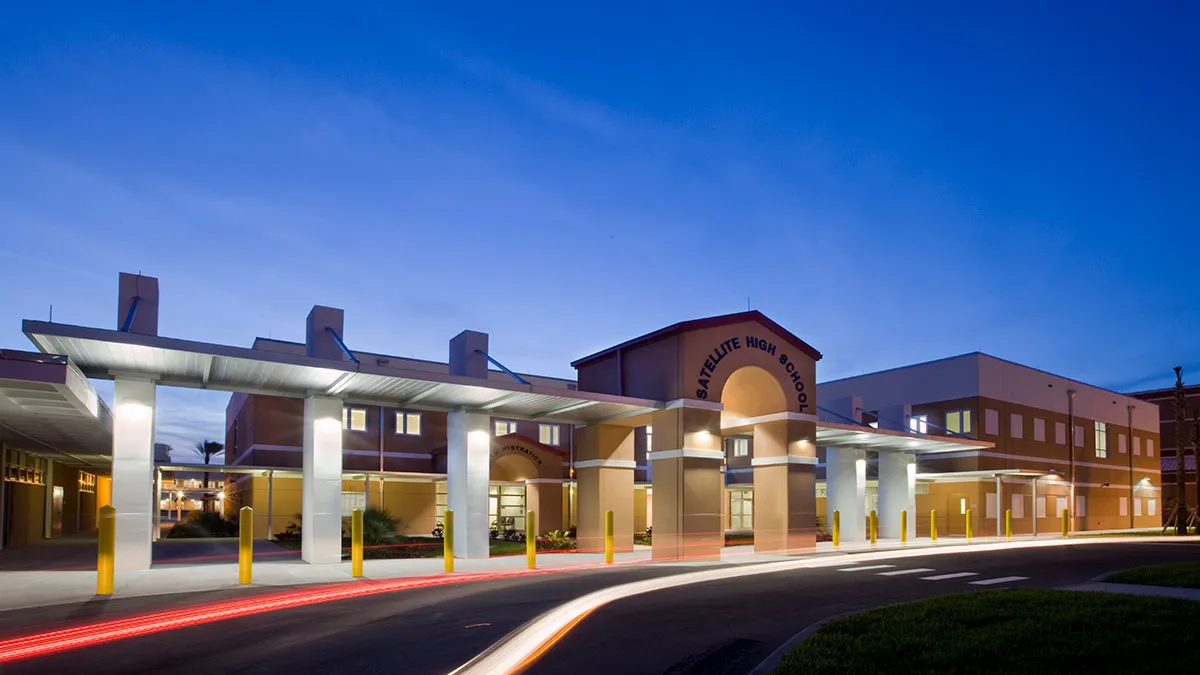After a relatively light education docket last year, the U.S. Supreme Court is poised to play a heavy role in K-12 this year.
So far in 2025, the court has already heard a case that could alter the future of the popular E-rate program, which provides internet services to schools and libraries at a discounted rate.
The justices also announced decisions in two cases with implications for K-12 schools — one on ghost guns and another on vapes.
In a March 26 decision, the Supreme Court decided in Bondi v. VanDerStok that the Bureau of Alcohol, Tobacco, Firearms and Explosives has the authority to regulate ghost guns as it does other firearms. Ghost guns are homemade guns assembled from kits purchased online and used by teenagers in some cases.
And on vapes, the court upheld the Food and Drug Administration's decision to deny approval for kid-friendly flavored e-cigarettes and limit the flavors available on the market.
Now, the Supreme Court is set to hear three K-12 cases back-to-back in the last two weeks of April. Here is what to know about each case:
Mahmoud v. Taylor
First up, on April 22, is Mahmoud v. Taylor, a case brought against Maryland's Montgomery County Board of Education over the LGBTQ+-inclusive language arts curriculum it adopted in 2023-24. The lawsuit centers on whether the state's largest school district was right to rescind its parental opt-out policy, a move it said it took because "individual schools could not accommodate the growing number of opt out requests without causing significant disruptions to the classroom environment.”
The Supreme Court agreed to hear the case in January after the plaintiff group of Muslim, Christian and Jewish parents appealed a May 2024 decision in the 4th U.S. Circuit Court of Appeals denying their request to pause the district's opt-out policy as the case continued. In their appeal to the high court, the plaintiffs said the policy hindered parents' ability to raise their children — especially pre-K-5 youngsters — in line with their religious beliefs.
While curriculum laws limiting LGBTQ+ instruction have cropped up in a majority of Republican-leaning states and are subject to their own legal challenges, this case originates from a blue-leaning state without any such law. Instead of limiting LGBTQ+-related instruction for every student, as laws have sought to do in red-leaning states, parents here seek only to excuse their own children from instruction on gender and identity issues they find controversial.
The case has garnered input from nearly 60 advocacy or civil rights groups, lawmakers, states and others that filed friend of the court briefs with the high court. They include AASA, The School Superintendents Association, 18 Democratic-leaning states and the District of Columbia, 26 Republican-leaning states, and the American Psychological Association and American Counseling Association.
AASA’s brief favored neither party, telling the Supreme Court it "should be mindful that while many states and localities provide instruction on sex education, jurisdictions vary widely in their approaches to instruction about sex education, including topics related to sexual orientation."
"Petitioners oversimplify national trends when they suggest there is any sort of 'national consensus respecting parental control over instruction on gender,'" the association, which filed jointly with a handful of other education groups, said. "Public schools around the country have long operated with the understanding, and expectation, that local and state authorities have the ability to regulate the conduct and curriculum within schools."
A.J.T. v. Osseo Area Schools
Six days after the Maryland opt-out case is heard, the Supreme Court on April 28 will hear a disability discrimination case to decide whether students filing such claims must prove that public school officials acted with discriminatory intent through “bad faith or gross misjudgment" — which petitioners say is a high bar to meet.
The case, A.J.T. v. Osseo Area Schools, challenges an 8th Circuit ruling from March 2024 that said children with disabilities who claim disability discrimination in educational settings under Title II of the Americans with Disabilities Act of 1990 and Section 504 of the Rehabilitation Act of 1973 must meet that high standard to potentially receive monetary damages.
Disability education advocates including the Council of Parent Attorneys and Advocates had urged the justices to take the case, saying the 8th Circuit missed the mark. The appellate , they said, is “contrary to the text of IDEA, and undermines Section 504 and the ADA, to the significant detriment of children with disabilities."
However, a higher standard for proving disability discrimination would favor school districts in such cases, lessening their exposure for liability.
St. Isidore of Seville Catholic Virtual School v. Drummond
Two days after that set of oral arguments, on April 30, the Supreme Court will hear a precedent-setting case to determine the future of what could be the nation's first public religious charter school. As part of the case, the Supreme Court could also rule more broadly on religious schools' access to public funds.
Before being blocked by the state's highest court, Oklahoma’s St. Isidore of Seville Catholic Virtual School was set to open for the 2024-25 school year, becoming the first public school in the U.S. with a faith-based curriculum. It was to be headed by a Catholic principal and require students to attend Mass.
The Oklahoma Supreme Court, however, ruled in June 2024 that the school’s creation violated the state and federal constitutions. The court directed the Oklahoma Virtual Charter School Board to rescind its contract with St. Isidore, which the board had approved in October 2023.
The virtual school appealed to the U.S. Supreme Court in October 2024, calling it "religious hostility" for the state court not to allow the religious charter school to be funded. The decision violated the school’s “right to participate in its charter school program solely because of St. Isidore’s religious character,” the school said in its petition.
From the start, some Oklahoma education leaders had expected St. Isidore to serve as a sort of a "test case," exploring the limits of public funding of religious schools after two previous Supreme Court cases — Carson v. Makin and Espinoza v. Montana Department of Revenue — which left open the possibility of religious charter schools. The St. Isidore situation has even put Oklahoma's leaders at odds with each other, with the state's current attorney general walking back his predecessor's approval of the school.





















